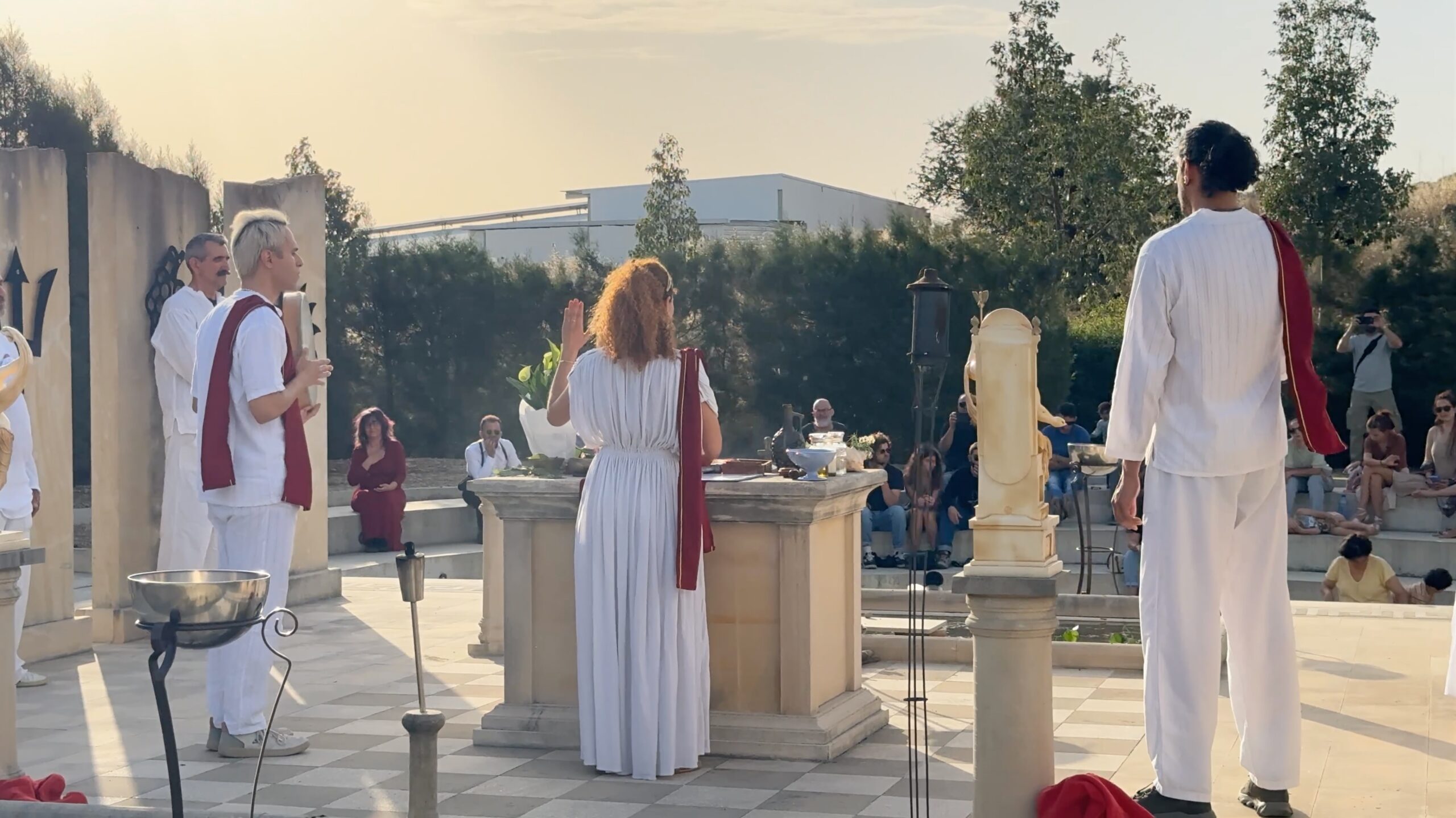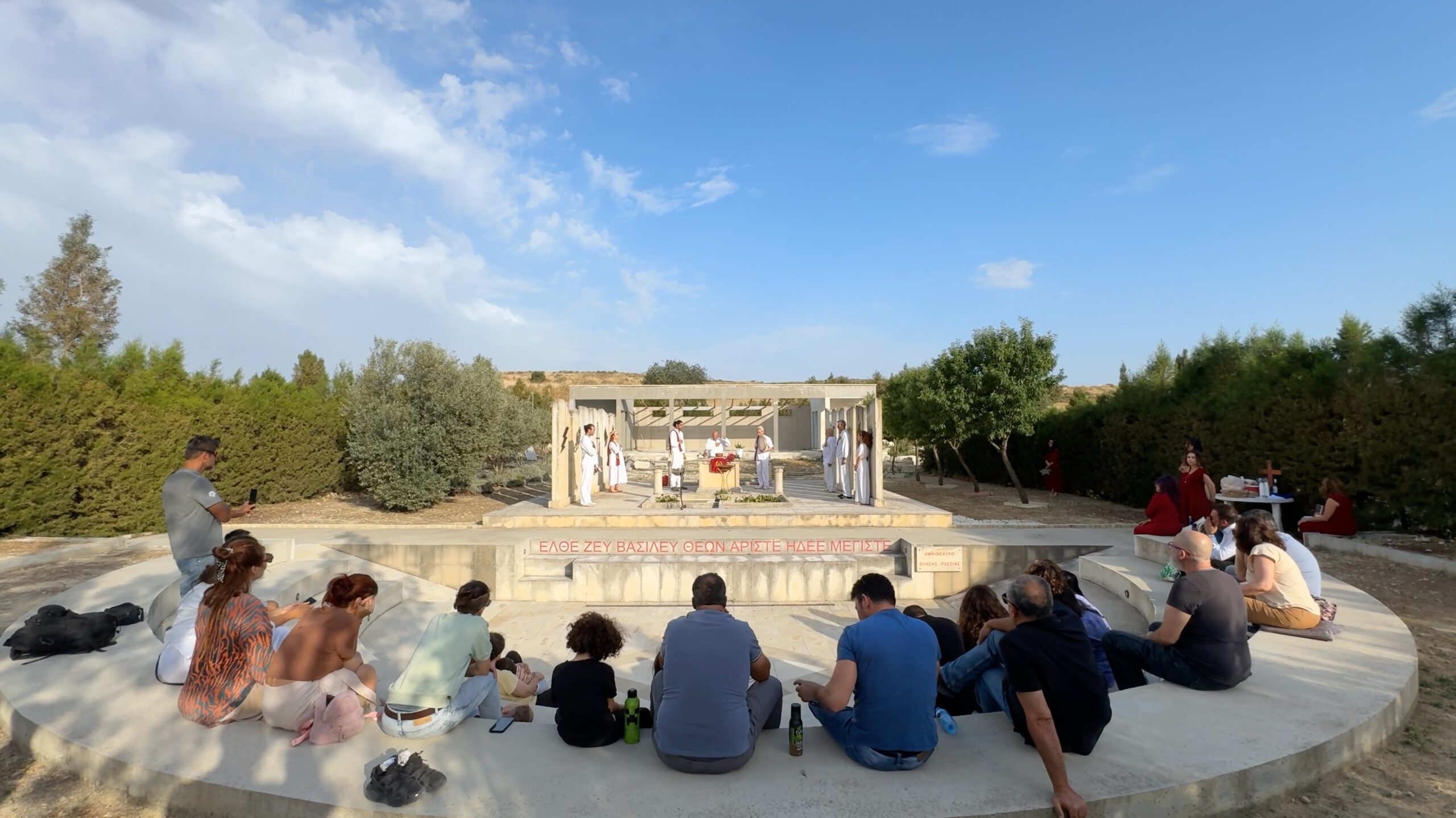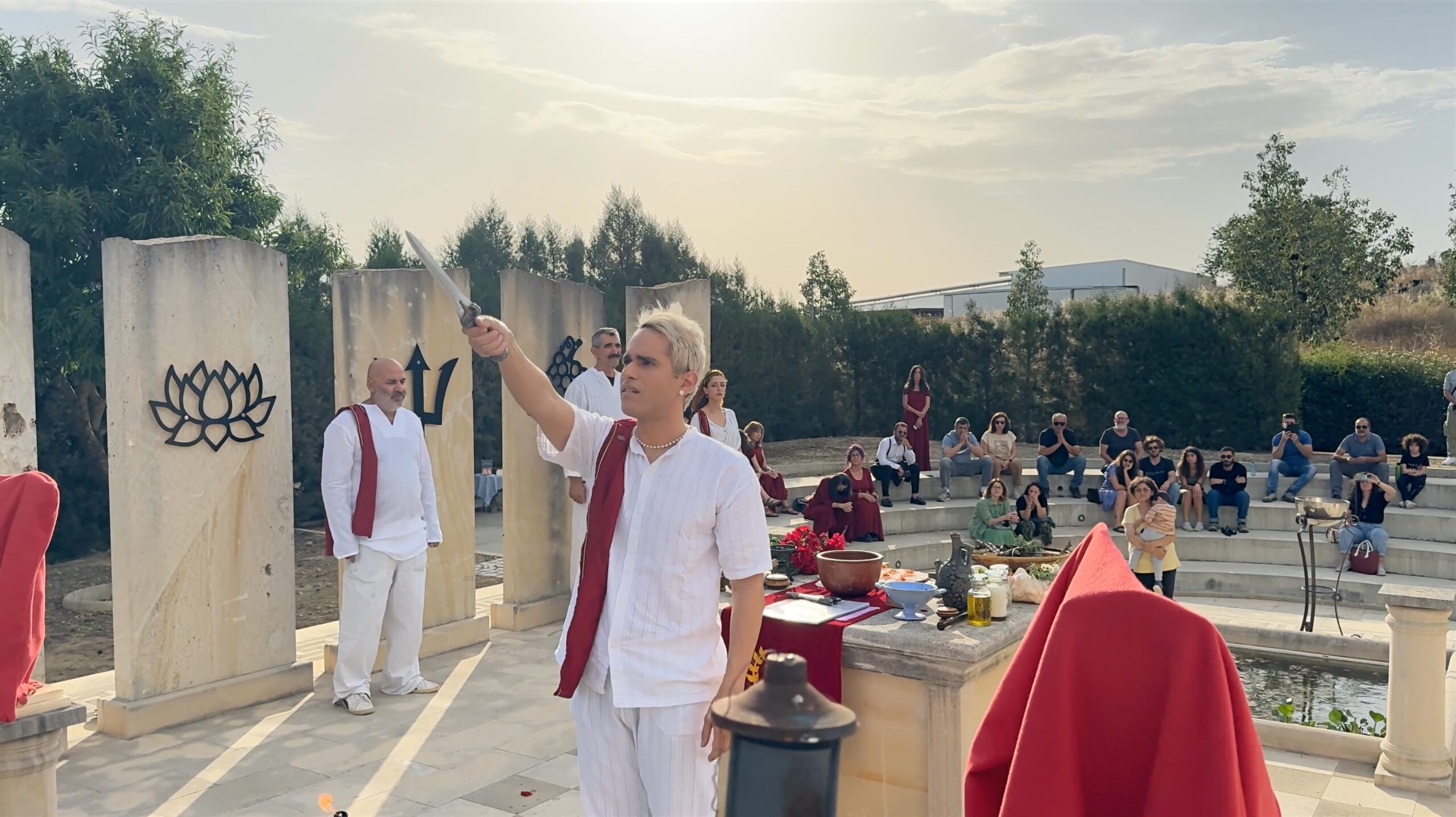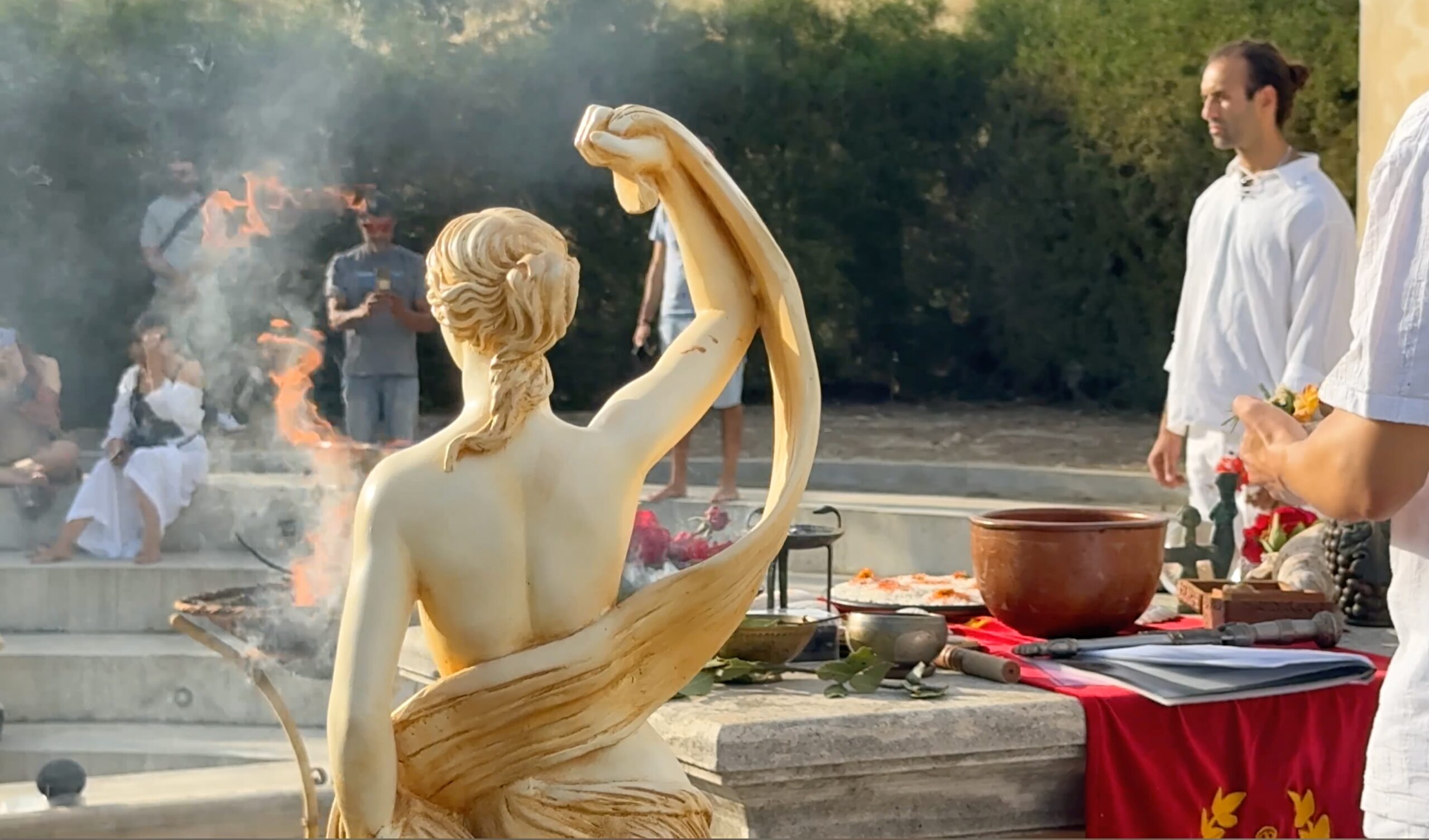
ATHENS – While Cyprus is famously known as Aphrodite’s birthplace, according to Hesiod’s Theogony she was said to have washed up on the coast of Paphos, the island’s ancient inhabitants worshipped a pantheon of Greek gods throughout the year. Apollo and Adonis were prominently celebrated, and sources suggest that Zeus also held significant importance, particularly near the village of Lympia, Nicosia.
The village of Lympia is believed to derive its name from Olympia. Archaeologists have discovered ancient tombs from a pre-Christian community named Olympia east of present-day Lympia. While the evidence is not definitive, the village’s name seems connected to the organization of local sporting games similar to the Panhellenic Olympic Games, which were held on a hill east of the ancient city of Idalion, near Lympia.
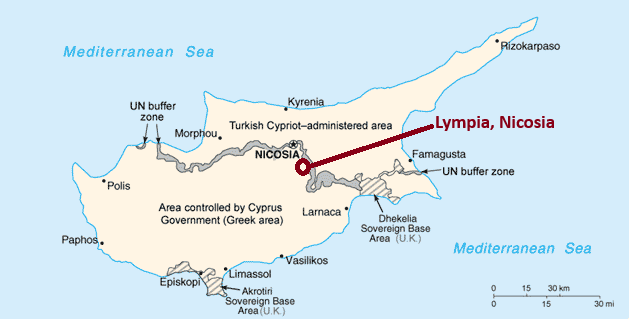
Maps showing the general location of Lympia United States Central Intelligence Agency – CIA World Factbook [Public Domain]
Inspired by this rich history, George Constantinou, a contemporary priest of the Hellenic Ethnic Religion at the Supreme Council of Ethnic Hellenes (YSEE) in Cyprus, undertook the mission of reviving the village’s ancient heritage. He embarked on constructing the world’s first licensed modern temple dedicated to Olympian Zeus, reflecting the village’s historical roots.
I first met George Constantinou after completing my priesthood training in Athens in 2017, the same year the Greek government officially recognized the Hellenic Ethnic Religion. At that time, I was still living in London, and we spent countless hours on the phone discussing his efforts and challenges in building the temple.
One of the primary issues Constantinou and other Hellenic Polytheists face in Cyprus is the restrictive religious recognition in the Republic of Cyprus’s constitution. The constitution acknowledges only two major religious communities—the Greek-Cypriots (Orthodox Christians) and the Turkish-Cypriots (Muslims)—alongside three other Christian groups: Armenians, Maronites, and Latins. New religious groups face no formal recognition process, a situation complicated by the historical intertwining of church and state, dating back to the first Cypriot president, Orthodox Archbishop Makarios III.
Undeterred, Constantinou partnered with an architect to design a temple that respects ancient traditions while embracing modern influences. This approach aligns with YSEE’s philosophy, which does not strictly adhere to Hellenic reconstructionism but practices a continuously evolving ancient religion.
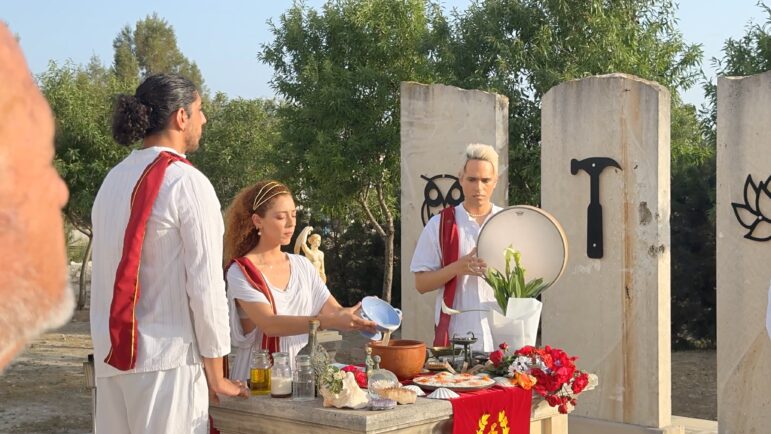
[Temple of Zeus – Courtesy of YSEE Cyprus]
Despite finalizing the temple design, Constantinou encountered significant resistance from town planning officials, who repeatedly denied construction permits. Prejudices against polytheistic religions fueled unfounded accusations, such as claims that the temple would host animal or human sacrifices. In reality, modern Hellenic Polytheism involves offerings and libations of grains, flowers, milk, honey, wine, and water.
After a protracted five-year journey of negotiations and meeting all regulatory requirements, the Temple of Zeus was officially completed and legalized on January 9, 2020. Since then, it has served as the primary worship site for YSEE Cyprus, where I also practice as a priest.
At the temple, we follow the Greek Wheel of the Year, celebrating twelve festivals aligned with the seasonal cycles. Our activities include monthly rituals, theological and philosophical talks, workshops, and theatrical productions at the temple’s amphitheater. During the presentation of my book “Secrets of Greek Mysticism” at the temple in June 2024, we partnered with the International Centre for Cultural Studies (ICCR) to foster collaboration with other pagan and polytheistic traditions worldwide.
While the journey to fully legalize the Hellenic Ethnic Religion in Cyprus remains challenging, the physical presence of the temple stands as a testament to the revival of Hellenism in a country where it has long been suppressed.
George Lizos is a spiritual teacher, psychic healer, priest to Hellenic Polytheism, creator of Intuition Mastery School®, as well as a #1 bestselling author (Lightworkers Gotta Work, Protect Your Light, Secrets of Greek Mysticism) and host of The Lit Up Lightworker and Can’t Host podcasts. He has been named one of the top fifty health and wellness influencers, and his work has been featured in Goop, PopSugar, and MindBodyGreen. He holds bachelor’s and master’s degrees in metaphysical sciences, a MSc in Psychology, and is trained in various spiritual and healing modalities.
George took part in the first official priesthood training in Hellenic Polytheism organized by the Supreme Council of Ethnic Hellenes (YSEE) in Athens, following the religion’s legal recognition by the Greek government in 2017. Since then, he’s been a practicing priest of the religion at the world’s first modern temple of Zeus in Cyprus. George can be found at www.georgelizos.com
The Wild Hunt is not responsible for links to external content.
To join a conversation on this post:
Visit our The Wild Hunt subreddit! Point your favorite browser to https://www.reddit.com/r/The_Wild_Hunt_News/, then click “JOIN”. Make sure to click the bell, too, to be notified of new articles posted to our subreddit.

